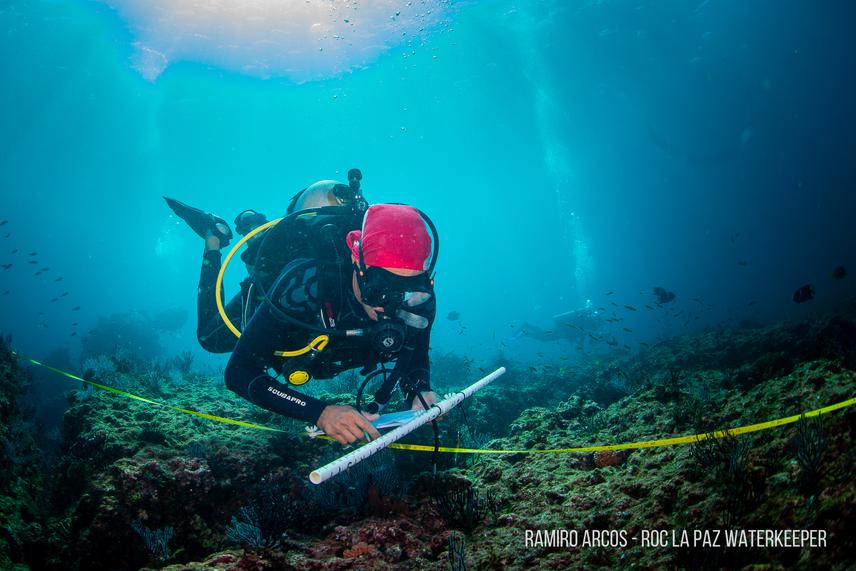Ramiro de Jesús Arcos-Aguilar
Research has unveiled the pivotal role played by factors like the abundance and location of fishing resources, as well as the intensity of surveillance efforts, in influencing the risk of illegal fishing. In Mexico, the resources and manpower dedicated to safeguarding these protected areas are very limited. Hence, we’ve embraced community-led surveillance programs, conducted in collaboration with MPA administration authorities. For nearly 13 years, the NGO Red de Observadores Ciudadanos A.C (ROC La Paz Waterkeeper). has been at the forefront of these community-based surveillance initiatives, partnering with local authorities to detect and combat illegal fishing activities. However, there's an urgent need to develop standardized methods and strategies that can be shared with local communities and the authorities responsible for these vital surveillance activities.

During underwater surveys, two couples of scuba divers are responsible for identifying, measuring, and counting macroinvertebrate and fish species along a 50-meter transect. © Ramiro Arcos.
The success of surveillance activities crucially depends on the efficacy of their strategies. In response to an urgent need for a comprehensive understanding of poaching behavior, this project aims to allocate surveillance resources efficiently by delving into the intricacies of illegal fishing activities in the Bay of La Paz, Baja California Sur.
The Bay of La Paz encompasses two Marine Protected Areas (MPAs), making it a critical region for biodiversity conservation. Our project focuses on this area as a case study, identifying historical hotspots where illegal fishing activities have been prevalent.
The overarching objective is to conduct an ecological characterization of these illegal hotspots, unravelling the environmental factors that contribute to their attractiveness for poaching. By employing a multidisciplinary approach, we seek to analyze various indicators that may influence the appeal of a site to poachers. This involves exploring ecological, geographical, and temporal aspects to determine patterns and correlations. The insights gained from this project will not only enhance our understanding of poaching dynamics in the Bay of La Paz but also facilitate the development of targeted strategies to combat and prevent illegal fishing activities.
This project aims to contribute valuable insights to conservation efforts in the region, fostering a proactive and targeted approach to address the challenges posed by illegal poaching. Through a comprehensive understanding of the ecological and environmental factors influencing poaching behavior, we aspire to enhance the sustainability of the Bay of La Paz's marine ecosystems and contribute to broader marine conservation initiatives.
Header: Patrolling La Paz Bay aboard Red de Observadores Ciudadanos A.C. boats (ROC) © Ramiro Arcos /ROC La Paz Waterkeeper.